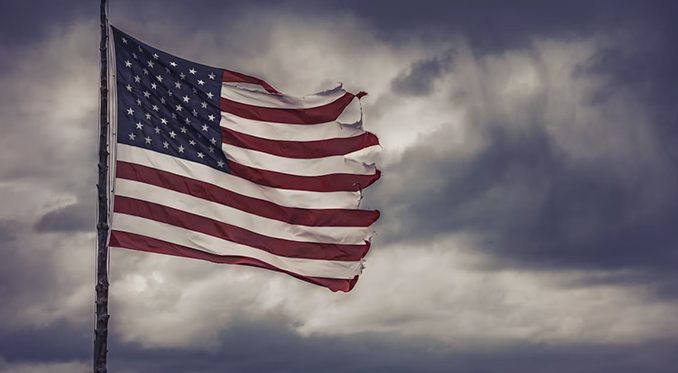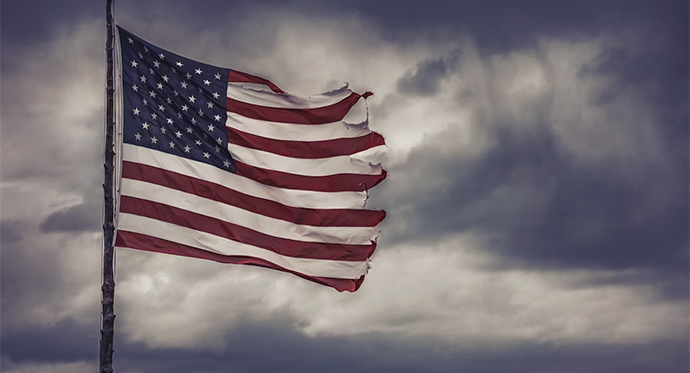
Does an American political tradition still exist?
It seems it must. After all, Americans have been carrying on politics together for hundreds of years. And when people do things together for such a long time, it seems they would necessarily develop habits and attitudes that help them deal with each other.
But what are those things? The more we explore, the more confused we become.
We can look at our basic political concerns. Abraham Lincoln said in the Gettysburg Address that our politics have to do with freedom and equality. Many agree, and I’m willing to go along with that, even though John Adams and George Washington would have wanted religion and public virtue to be more part of the picture.
But an emphasis on freedom and equality doesn’t get us very far, since they can mean anything. We are equal to our equals, but who are they, and how are they equal? I’m not politically equal to Donald Trump, legally equal to Ketanji Brown Jackson, or economically equal to Bill Gates. People who think that’s OK while claiming to be devoted to equality are using “equality” in a rather idiosyncratic sense. And people who think that’s not OK need to explain just what their ideal society would look like, and how it would work.
As for freedom, it’s hard to distinguish from obligation, since my freedom means you have to cooperate. I won’t be free if you act oppressively. But it’s not for you to tell me what I should find oppressive, and people seem to agree that microaggressions are oppressive.
It follows that my freedom includes your duty to act as you should—however I may define “should.” I may well believe, for example, that my freedom includes freedom from your religious expression. Why should I have to be confronted by your stupid, destructive, and downright Satanic chatter? It should—I believe—be suppressed like any other public nuisance.
You likely will not agree. So it goes. Nor do the conflicts lessen when people put freedom and equality together. Depending on outlook, the combination can mean free enterprise and colorblindness, welfare rights and DEI, or any number of other things, all at odds with each other.
Or maybe broad qualities and concerns define our tradition. But do we incline toward idealism or pragmatism? How about nationalism? Internationalism? Minimal government? Federalism and local control? Or “hope and change,” meaning social engineering?
We might look at national myths. But there have been lots of them, all different and subject to constant change and manipulation. Is the real America a nation of immigrants? A melting pot? An inheritance from the Mother Country and frontier experience? A land of families, churches, and local communities? Or instead, a glorious tapestry of diversity and multiculturalism—which would make it nothing in particular?
There’s no answer, since an answer would require a common understanding of what is important in life, how it is achieved, and whose experiences should matter. But liberal freedom and equality have no room for such things. After all, who are you to tell me what I should believe, who or what I should love, how I should live, or who I should listen to?
Even so, a decision has to be made. Of necessity, it will be made by the people who are in a position to decide things—the powerful—and in the absence of principle, the answer will always come down to their interests. No doubt they will sincerely view that as a victory for the public good.
The natural conclusion is that we aren’t really doing politics together. We are just battling each other over personal advantages, or over inconsistent visions of man, God, the world, and the common good, and trying to manipulate symbols to prove that our own desired goals are the true expression of the American tradition.
Unless, of course, we are among the leftists, integrists, and Third Worldists who think the American political tradition is beyond salvage.
That has become a view commonly held by accepted moral leaders, as demonstrated by land acknowledgments, the destruction of statues, the replacement of Columbus Day by Indigenous Peoples’ Day, and the campaign by the New York Times to paint racism and slavery as America’s true founding principles.
So what is the condition of the American political tradition when those who take our official public morality most seriously, and so are the natural custodians of that tradition, have decided that America as such is evil?
All this is a political catastrophe. Every national tradition is flawed by original sin, but its destruction is worse. Neither human life nor human society would last five minutes if they didn’t mostly work as they should, and however bad our habits or traditions we would be even worse off if we had none at all but simply acted in response to immediate pressure and impulse.
That is more and more where we are. MAGA is a response to that situation that seems mostly based on the idea of America as a team that wants to win. As such, it is insufficient for the needs of an ordinarily humane and functional society. Even so, it seems better than The Resistance, which mostly seems based on the idea that MAGA is evil, and nationality and other traditional connections should be dissolved—for example through DEI and effectively open borders—and replaced by a universal expert bureaucracy that takes care of us all without subjecting us to any risks or burdensome individual demands.
None of this is going to work, but it’s not clear how we get out of it. While history may not have come to an end, a particular line of development—modernity and its successor post-modernity—evidently has. Under such circumstances, grand political strategies seem out of place. There are no reliable materials to work with, and it is difficult to envision a future that could be brought about through political action that is basically different from what we have now. We should do what we can in public life—we can never be sure what hidden possibilities there are—but that may be very little.
Apparently, fundamental understandings and ways of living must change. It is time for a reset that is far greater than the one the World Economic Forum proposed a few years ago, one that is too great to be forced or planned. That makes it a time for unvarnished truth on the one hand, and practical expedients and alliances on the other—in short, a time to be as wise as serpents and as innocent as doves.
The secular world does not offer a tolerable way of life, so we must develop a more Catholic way of life in Catholic community. That means drawing together through love of God, clarity of doctrine, and love of neighbor—first of fellow Catholics and other close connections, and then by stages or chance encounters of all with whom we have dealings.
These things are easier said than done. As Emerson noted, “It takes a great deal of elevation of thought to produce a very little elevation of life.” Generalized elevation of thought—good intentions—is not enough. The Apostle Paul gets more to the point: “to them that love God, all things work together unto good.”
And that is what we must rely on. Saint Benedict helped found the Christian civilization of the West by literally heading for the hills to draw closer to God. What he did was indispensable. God cannot be subordinated: if He could, He would not be God. He is not a means. He is the goal. When we forget that, our faith no longer does anything for us.
Jesus made the command to love God the first and greatest commandment for a reason. To follow Him is, first of all, to follow Him on that point. Without specific emphasis on God—not as symbol, manner of speaking, organizing concept, Omega Point, or unknowable mystery, but as reality and indeed the Most Real Being—Catholicism, along with social life and ultimately thought itself, loses its center and falls apart.
So that is the primary social responsibility of the Church: to put God first for His own sake. Otherwise, our salt will certainly lose its savor, and we will have nothing to offer the world.
If you value the news and views Catholic World Report provides, please consider donating to support our efforts. Your contribution will help us continue to make CWR available to all readers worldwide for free, without a subscription. Thank you for your generosity!
Click here for more information on donating to CWR. Click here to sign up for our newsletter.













